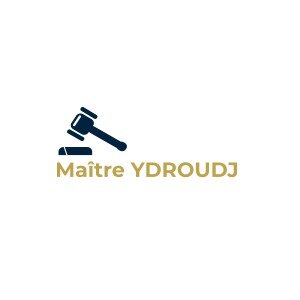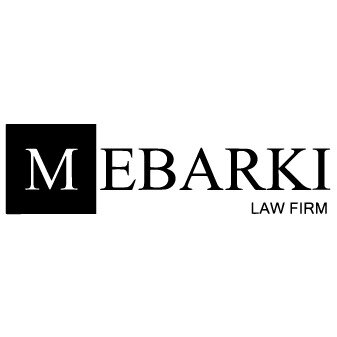Best Restructuring & Insolvency Lawyers in Algeria
Share your needs with us, get contacted by law firms.
Free. Takes 2 min.
Or refine your search by selecting a city:
List of the best lawyers in Algeria
About Restructuring & Insolvency Law in Algeria
Restructuring and insolvency law in Algeria is a legal framework that regulates how financially distressed companies and individuals address the inability to meet their financial obligations. These laws provide procedures for restructuring debts, negotiating with creditors, and, in some circumstances, liquidating assets to pay off outstanding liabilities. The Algerian Commercial Code, particularly Book III, governs bankruptcy, insolvency, and restructuring processes, with recent reforms aimed at encouraging early interventions, improving creditor rights, and fostering a more efficient insolvency framework. These laws help ensure fair treatment of both debtors and creditors, and strive to maintain stability within the economic system.
Why You May Need a Lawyer
Seeking legal advice in restructuring and insolvency situations can be vital for both individuals and businesses. Here are some common instances when professional legal help is essential:
- You are unable to pay your debts as they fall due and are considering bankruptcy or insolvency proceedings.
- Your business is facing severe financial hardship, and you are exploring options such as restructuring, debt negotiation, or sale of assets.
- You are a creditor seeking to recover amounts owed by a financially distressed company or individual.
- You wish to understand your rights and obligations under Algerian insolvency laws, particularly if you are a shareholder, director, or manager of a company in distress.
- You need to respond to a bankruptcy petition or are concerned about personal liability during insolvency proceedings.
- You want to participate in a restructuring plan or creditor meeting.
- You are interested in acquiring assets from an insolvent company or participating as an investor in restructuring proceedings.
A specialized lawyer can guide you through the legal process, help protect your rights, minimize risks, and increase the likelihood of a more favorable outcome.
Local Laws Overview
Algeria's restructuring and insolvency laws primarily fall under the Algerian Commercial Code, particularly Book III. The law provides a structured process for both judicial settlement (redressement judiciaire) and bankruptcy (faillite). Significant aspects include:
- Insolvency Triggers: Insolvency proceedings can be initiated when a company or individual stops paying its debts as they become due.
- Moratorium Period: Upon opening proceedings, certain creditor actions are suspended to give the debtor some breathing space.
- Role of the Receiver: The courts appoint a receiver (syndic) who manages the process, evaluates assets, and oversees distributions.
- Creditors' Rights: Creditors are required to declare their claims within a specified period. Certain creditors may have preferential rights.
- Restructuring/Rescue Procedures: The law encourages involvement of creditors in rescue plans, aiming for continued business operations if possible.
- Bankruptcy Declaration: If restructuring fails, the process shifts to liquidation, with assets sold to repay creditors in a predetermined order.
- Director Liability: Company directors can be held liable in cases of wrongful or fraudulent trading.
- Reporting Requirements: There are ongoing obligations for transparent financial disclosures throughout the proceedings.
Recent reforms seek to align Algerian law with international best practices, promoting earlier intervention and preventing avoidable business failures.
Frequently Asked Questions
What is the difference between insolvency and bankruptcy in Algeria?
Insolvency refers broadly to the inability to pay debts when due. Bankruptcy is a formal legal process following insolvency where the debtor's assets are managed by a court-appointed receiver and distributed to creditors.
Can businesses continue operating during insolvency proceedings?
Yes, in many cases, businesses are allowed to continue operations under judicial supervision during the restructuring phase to try and preserve value and jobs.
Who can initiate insolvency proceedings?
Insolvency proceedings can be initiated by the debtor, creditors, or sometimes by the public prosecutor, depending on the circumstances.
Are all debts included in insolvency proceedings?
Most unsecured debts are included. Secured and preferential creditors may have special rights, while some debts, such as certain tax liabilities, may be treated differently.
What happens to company directors during insolvency?
Directors have specific duties during insolvency. They may be liable for wrongful trading or mismanagement and can face bans or penalties for certain conduct.
How are creditors' claims handled?
Creditors must lodge their claims within a court-set time frame. The receiver will validate and rank claims according to their legal status.
Can individuals file for personal bankruptcy?
Yes, Algerian law provides for both corporate and personal insolvency and bankruptcy proceedings.
Is it possible to restructure debts without going to court?
While the formal procedure is court-driven, informal out-of-court settlements or voluntary arrangements are sometimes possible but less regulated.
Do insolvency proceedings impact employees?
Employees' rights are generally protected, with unpaid salaries often receiving priority during the distribution of assets.
How long do insolvency proceedings typically take in Algeria?
The duration varies depending on the complexity of the case, the number of creditors, and the existence of a viable restructuring plan. Cases may last several months to years.
Additional Resources
People seeking assistance with restructuring and insolvency matters in Algeria may find the following resources useful:
- Algerian Commercial Courts: The official bodies for filing and managing insolvency proceedings.
- Ministry of Justice: Provides legal texts and guidance on judicial procedures.
- Chamber of Commerce and Industry: Offers support and information for businesses in financial distress.
- Local Bar Associations: Can assist in locating qualified lawyers specializing in insolvency law.
- Business Support Organizations: These may provide counseling and advisory services to prevent insolvency or assist in restructuring plans.
Next Steps
If you believe you may be facing restructuring or insolvency issues in Algeria, consider taking these steps:
- Gather all relevant financial and legal documents, including balance sheets, contracts, and debt agreements.
- Consult with a lawyer specializing in insolvency and restructuring to assess your situation and determine available options.
- Engage with creditors proactively, where possible, to discuss potential solutions and demonstrate good faith.
- If proceedings are necessary, your lawyer will help you prepare applications and represent you before the Commercial Court.
- Remain informed about your rights and obligations, and follow all legal requirements to ensure a smoother process and protect your interests.
Every situation is unique, so professional legal advice is crucial to achieving the best outcome for your circumstances.
Lawzana helps you find the best lawyers and law firms in Algeria through a curated and pre-screened list of qualified legal professionals. Our platform offers rankings and detailed profiles of attorneys and law firms, allowing you to compare based on practice areas, including Restructuring & Insolvency, experience, and client feedback.
Each profile includes a description of the firm's areas of practice, client reviews, team members and partners, year of establishment, spoken languages, office locations, contact information, social media presence, and any published articles or resources. Most firms on our platform speak English and are experienced in both local and international legal matters.
Get a quote from top-rated law firms in Algeria — quickly, securely, and without unnecessary hassle.
Disclaimer:
The information provided on this page is for general informational purposes only and does not constitute legal advice. While we strive to ensure the accuracy and relevance of the content, legal information may change over time, and interpretations of the law can vary. You should always consult with a qualified legal professional for advice specific to your situation.
We disclaim all liability for actions taken or not taken based on the content of this page. If you believe any information is incorrect or outdated, please contact us, and we will review and update it where appropriate.
Browse restructuring & insolvency law firms by city in Algeria
Refine your search by selecting a city.












